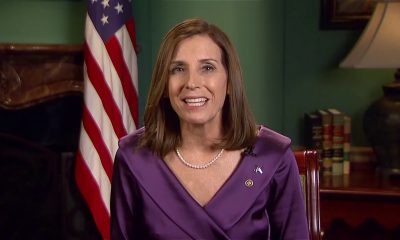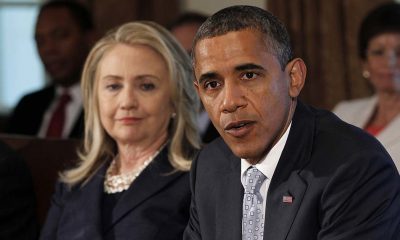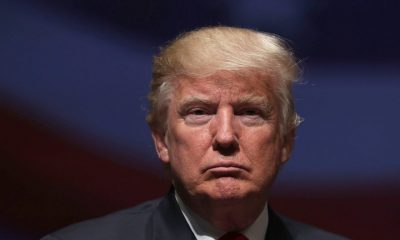World
US challenges Bobby Jindal’s efforts to stop Planned Parenthood

Washington: The Obama administration is challenging Louisiana’s Indian-American Governor Bobby Jindal’s attempt to terminate Planned Parenthood Gulf Coast, a non-profit providing reproductive health and maternal and child health services, from the state’s Medicaid programme.
Republican presidential contender Jindal’s effort to terminate Planned Parenthood was launched following the release of a series of undercover videos by abortion opponents that have raised questions about clinic operations.
Most of the others in the crowded field of 17 Republican presidential contenders have also vowed to stop federal funding for the programme if elected.
In a brief filed late Monday in a Louisiana federal court, Justice Department lawyers said the state had not provided appropriate “justification” to strip the provider from the federally-subsidised Medicaid programme, USA Today reported.
The action is ahead of a scheduled hearing where Planned Parenthood is moving to block Jindal’s effort.
The hearing is set for Wednesday in Baton Rouge before US District Judge John deGravelles, who was nominated to the federal bench by President Barack Obama. He was confirmed in January.
“States do not have unfettered discretion to determine that a provider is not qualified for purposes of federal Medicaid law,” according to the brief as cited by USA Today.
“To conclude otherwise would not only strip the Medicaid Act’s free choice provider of all meaning, but also would contravene clear congressional intent to give Medicaid beneficiaries the right to receive covered services from any qualified and willing provider.”
“President Obama is so committed to protecting Planned Parenthood’s baby harvesting operation that he sent his lawyers from the Department of Justice all the way to Baton Rouge to sue me and try to stop us from cancelling these contracts,” Jindal said in a statement issued by his campaign.
“President Obama won’t watch the videos but he’ll take time to file a lawsuit. Well, I’ve got news for him. We are not backing down.”
The dispute between Jindal and Planned Parenthood has escalated outside the courtroom in recent weeks.
Last month, as Planned Parenthood staged protests outside the governor’s mansion, Jindal responded by playing the undercover videos on a outdoor screen.
World
Lockdowns in China Force Urban Communities to Defy Censorship and Vent Frustration Online

Shanghai’s rich middle class is leading a wave of online dissent over the strict and prolonged lockdowns imposed in various parts of the country. Chinese internet censorship is struggling as patience is wearing thin in many urban centers, coming up with creative forms of online protests.
Social Media Posts Revealing Lockdown Tension in Shanghai
Drawn-out lockdowns are nothing new in China as authorities insist with the nation’s zero-Covid policy since the start of the pandemic. Currently over This time around, however, metropolitan areas like Shanghai are increasingly difficult to keep quiet, given that its more than 25 million residents have seen weeks of total isolation along with food shortages and many other service interruptions.
Dozens of towns and reportedly over 300 million Chinese citizens have been affected by lockdowns of different severity. As expected, urban netizens have been most outspoken over their difficulties by finding creative ways to get around state censorship and bans placed on topics, news comments and spontaneous campaigns.
Shanghai residents have been using mobile proxies and hijacking seemingly unrelated hashtags to talk about healthcare issues, delivery failures and the overall severity of their situation. The “positive energy” that the Chinese government wants to transmit during the recent prolonged series of lockdowns does not come naturally to those counting food supplies and online censors are working hard to filter words, trending topics and undesired social media sharing.
WeChat groups and message threads are under constant monitoring. Posts questioning the zero-Covid approach have been quickly deleted, including by leading Chinese health experts like Dr. Zhong Nanshan. Video footage is soon censored and protests and investigations are quickly made to disappear.
Where this has not worked, officials have exposed banners with warnings and outright threats like “watch your own mouth or face punishment”, while drones have been patrolling the city skies. Yet, if anything, this has led to further tensions and unspoken confrontation with Shanghai’s educated and affluent middle class.
Creative Online Solutions Harnessing Civic Energy
Announcements by Chinese social media that they would be publishing the IP addresses of users who “spread rumors” have not helped either. Tech industry research has shown that much of Asia’s tech-savvy population has a habit of using mobile proxies and other privacy tools, quickly finding workarounds to browse the internet freely and talk to the world about the hottest topics.
The sheer volume of forbidden posts is already a challenge for the very censorship system, experts explain. Unable to track all trending hashtags, state workers overlook topics that speak about the US, Ukraine or other popular news. Linking human rights elsewhere to their situation, Chinese online dissidents establish their informal channels and “hijack” the conversation to share personal or publicly relevant information about the Covid suppression in their town.
Sarcastic and satirical posts still dominate. Others hope to evade the censors by replacing words from famous poems or the national anthem. One thing is certain – social media, when harnessed with the right creativity, has proven its ability to mount pressure on the government in even some of the most strictly controlled tech environments like China.























